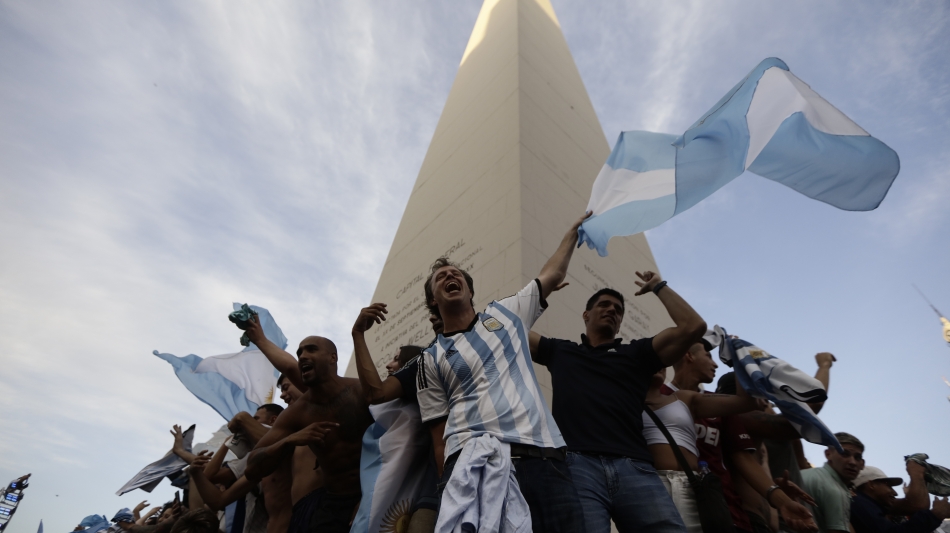Buenos Aires: Argentina's economy may be sinking but the entire country is buoyant, basking in the elation of its football team led by iconic captain Lionel Messi reaching the World Cup final.
The dream of landing Argentina's third world title, 36 years after the last one, seems -- at least for now -- to have let Argentines forget their woes.
That number three seems significant today, and not just because Messi and his teammates seek to put a third championship star on the team's blue and white jersey.
Sporting glory arrives at a time when many people believe the inflation that has wreaked havoc on the South American nation's economy will reach a barely believable triple digits for 2022.
Last Thursday, the INDEC statistics institute published the price index for November, around six percent, suggesting inflation, which already stood at 88 percent over the last 12 months, is not decelerating.
Argentina has had double-figure inflation for decades.
But there is a genuine feeling that soccer success -- and that Messi magic -- can alleviate the pain of millions in a country where the poverty level is over 40 percent.
Before the tournament in Qatar began, Argentina's Labor Minister Kelly Olmos was even asked whether lowering inflation was more important than winning the World Cup.
"We must constantly work against inflation, but one month won't make a huge difference," she said.
"On the other hand, from a morale point of view, given what it means for all Argentines, we want Argentina to be champions," Olmos added. "The Argentine people really deserve some joy."
Predictably, that provoked a barrage of criticism.
'A relief'
And yet Argentines crowd around television screens in droves to watch the team's matches, whether in bars, homes, even a Buenos Aires 'fan zone.'
Most of these fans could never dream of affording a ticket to Qatar in a country where the average wage is a meagre 66,500 pesos ($390).
"People are well aware of the problems" but football and the economic situation "are on parallel paths, they don't meet," Lucrecia Presdiger, a 38-year-old hospital worker, told AFP after Argentina's quarter-final victory over the Netherlands.
"Many people really need this joy and are making the most of it. But they don't take it literally, they know it's only football, they are perfectly aware of the problems," Presdiger said, adding: "You shouldn't take them for fools."
For designer Tony Molfese, an Argentina triumph would be "a relief, a breath of fresh air, a joy, even momentary -- and we deserve it."
Olmos drew parallels with Argentina's first World Cup success in 1978, when the country was run by a military dictatorship.
"We were under dictatorship, persecuted, we didn't know what tomorrow held, but Argentina became champions and we went out to celebrate in the streets," she recalled.
"And then we went back to the reality, which was unrelenting."
'Transient and eternal'
Despite the great passions football inspires, it remains just a game, according to writer Ariel Scher.
"Football bestows individual and collective joy, but that joy is transient, it doesn't eliminate the other problems of existence," Scher, a university lecturer and football specialist, said.
"It's like when our child passes an exam: we're delighted but that doesn't pay the bills."
The power of football is that "it gives us the possibility of a happiness that is both transient and eternal," added Scher.
"No problems will be resolved or eliminated but at the same time, even briefly, it dazzles us with something that leaves a lasting memory."
In a November poll, more than three quarters of Argentines said the country's fortunes at the World Cup would have an effect on people's morale.
Some 32 percent even said they thought the result would affect the next presidential election in 10 months time.
Political scientist Raul Aragon scoffed at such an idea.
Regardless of what happens in Sunday's final "the social mood will return to what it was before. And no political force could capitalise on any eventual victory."
Source: AFP


